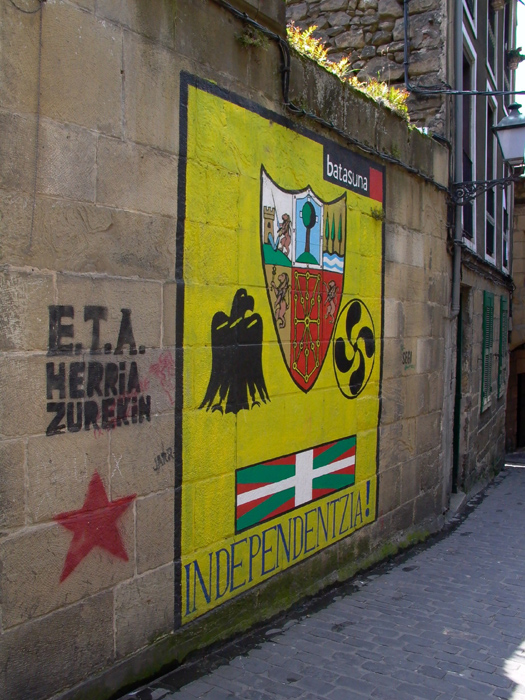
Traditionally, the main purpose of propaganda in media is to persuade and influence its intended audience from either a moral, political or ideological standpoint. It proves one of the most effective tools in imposing control over a mass audience and for this usually acquires a negative undertone. This is a fact that holds true in all types of media (newspaper, radio, television, film, posters, newsletters etc) and in all established nations of the world; contemporary Spanish media no less a contributing factor.
Over the last century, the agenda of Spanish media have had many transfor
 mations. According to Jose Magone’s book on assessing contemporary Spanish politics there have been five particular phases of political ideologies that play a factor in information distribution adjunct to its suppression. Stemming from the totalitarian days of Francisco Franco, to nationalist democratization of the early 80’s, and socialist reformation of the modern Spanish political landscape, propaganda techniques continue to prove important instruments in agenda setting expressionism.
mations. According to Jose Magone’s book on assessing contemporary Spanish politics there have been five particular phases of political ideologies that play a factor in information distribution adjunct to its suppression. Stemming from the totalitarian days of Francisco Franco, to nationalist democratization of the early 80’s, and socialist reformation of the modern Spanish political landscape, propaganda techniques continue to prove important instruments in agenda setting expressionism.As previously stated, propaganda managed to shape Spanish ideology through the greater part of Franco’s dictatorship and used as a tool to suppress all other opposing ideologies at the time according to research conducted by Raanan Rein, a renowned professor of Latin American and Spanish History. Rein brings to light the argument that the pro-Franco regime also used their power over media to depict their “neutrality” between the Axis and Allied powers during World War II a
 nd accordingly the horrors subjected to the Jewish community during the Holocaust. Modern day scholars question the sincerity of Franco’s position pertaining to the well being of the Jewish community as opposed to “improve(ing) the dictatorship’s image in the eyes of Western democratic public opinion,” but nevertheless, over time it proved effective in defending the welfare of the Jewish community and ameliorating the anti-Semitic sentiments of the time.
nd accordingly the horrors subjected to the Jewish community during the Holocaust. Modern day scholars question the sincerity of Franco’s position pertaining to the well being of the Jewish community as opposed to “improve(ing) the dictatorship’s image in the eyes of Western democratic public opinion,” but nevertheless, over time it proved effective in defending the welfare of the Jewish community and ameliorating the anti-Semitic sentiments of the time.In addition, there is the question of the modern political Spanish agenda as well as the agendas of radical extremist groups such as E.T.A. and even
 Islamic jihadists that currently roam its socio- political landscape. For example, these extremist groups attempt unorthodox approaches towards propaganda, mostly violent or inflammatory such as vandalism, graffiti, and even martyrdom. These approaches towards propaganda, although by no means traditional, still prove effective in, if not instilling fear amongst its rivals and intended audience, then getting a biased, fear-mongering message across. As for the current Socialist regime in Spain like any governing body also contain their own strategies of policy setting, fortunately just as effective and not as damaging to its own public.
Islamic jihadists that currently roam its socio- political landscape. For example, these extremist groups attempt unorthodox approaches towards propaganda, mostly violent or inflammatory such as vandalism, graffiti, and even martyrdom. These approaches towards propaganda, although by no means traditional, still prove effective in, if not instilling fear amongst its rivals and intended audience, then getting a biased, fear-mongering message across. As for the current Socialist regime in Spain like any governing body also contain their own strategies of policy setting, fortunately just as effective and not as damaging to its own public. Sources:
Magone, Jose. Contemporary Spanish Politics. New York: Routledge, 2008.
Mahan, Sue, and Pamala L. Griset. Terrorism in Perspective. Minneapolis: Sage Publications, Inc, 2007.
Rein, Raanan. "Diplomacy, Propaganda, and Humanitarian Gestures: Francoist Spain and Egyptian Jews, 1956-1968." IberoAmericana (2006). http://www.iai.spk-berlin.de/fileadmin/dokumentenbibliothek/Iberoamericana/23-rein.pdf.
"YouTube - Revolution in Spain." YouTube - Broadcast Yourself. 04 Apr. 2009
No comments:
New comments are not allowed.